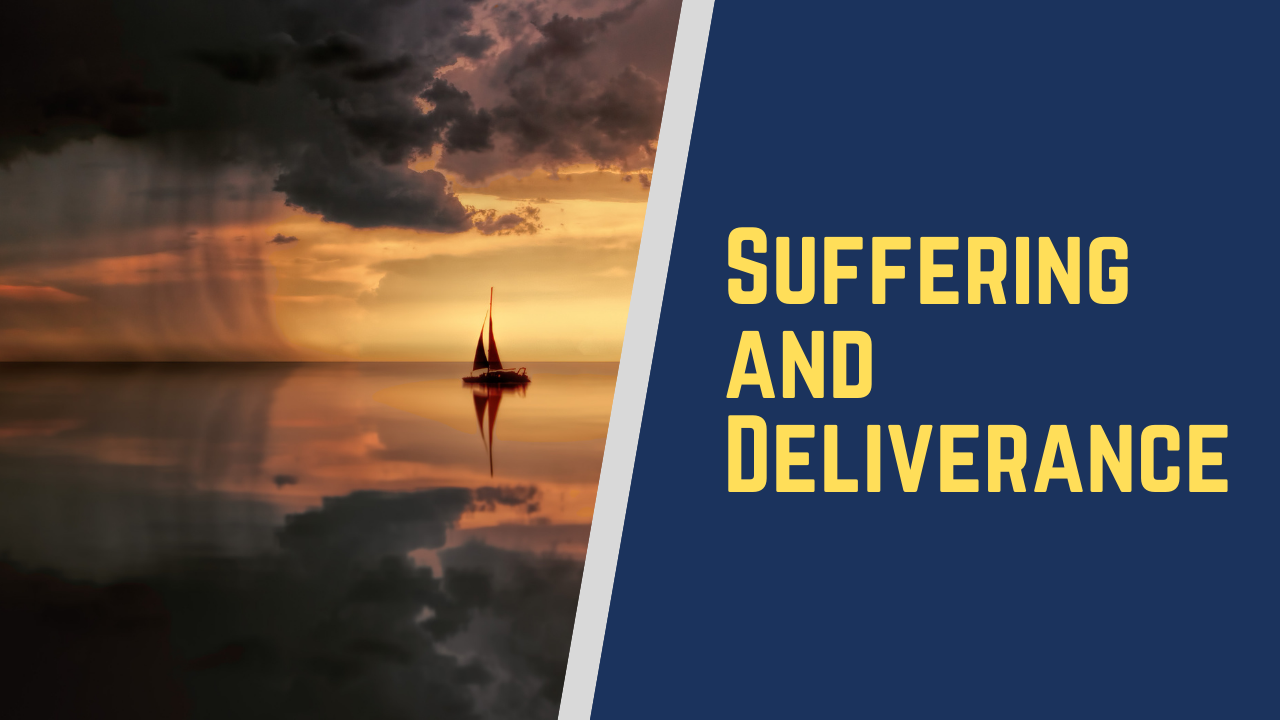Suffering and Deliverance (Part 33) - Jews in the days of Esther
Submitted by Pastor Chad Wagner on Sunday, February 13, 2022.


26. Jews in the days of Esther A. During their exile, the Jews were dispersed throughout the Medo-Persian empire. B. Among the Jews was a man named Mordecai who had a young cousin named Hadassah (later named Esther) whom he raised as his own daughter (Est 2:5-7). C. Esther ended up becoming the queen after the former queen was deposed by the king (Est 2:16-17). D. A man named Haman was promoted above the other princes in the realm (Est 3:1). E. The king commanded his servants to bow before Haman, but Mordecai refused because he was a Jew, and bowing down to a man was forbidden by God (Est 3:2-4). i. We ought to obey God rather than man (Act 5:29). ii. Mordecai would not compromise regardless of the consequences (Est 5:9). iii. He was eventually rewarded and exalted for his faithfulness (Est 8:15; Est 9:3-4; Est 10:3). F. Haman was full of wrath when he found out that Mordecai would not bow to him and set out to destroy all the Jews in the kingdom (Est 3:5-6). G. Haman went to the king and talked him into destroying all the Jews (Est 3:8-9). i. The king foolishly gave his consent to it without even knowing who he agreed to genocide (Est 3:10-11). ii. Haman had framed mischief by a law (Psa 94:20). iii. The king had hearkened to lies which showed that his servants were wicked (Pro 29:12). H. Haman had devised this wicked plot in the 1st month of the year (Est 3:12). i. He had cast Pur, which was a lot, to determine when to destroy the Jews, and the lot landed on the 12th month (Est 3:7 c/w Est 9:24 c/w Est 3:13). ii. The LORD had providentially given the Jews 11 months to buy them time and to prepare to defend themselves. iii. "The lot is cast into the lap; but the whole disposing thereof is of the LORD." (Pro 16:33) I. The copy of the decree went out and the city of Shushan was perplexed (Est 3:14-15). J. As Christians we will sometimes be perplexed when we find ourselves in a difficult situation, but we should never be in despair (2Co 4:8). K. There was great mourning among the Jews when they learned of the decree (Est 4:1-3). L. Esther heard of the lamentation and sent to learn what had happened (Est 4:4-7). i. Mordecai told her to go to the king and make supplication for her people (Est 4:8). ii. Esther told him that she could be killed for approaching the king uninvited (Est 4:11-12). iii. Mordecai told her that if she did nothing her and her father's house would die, but God would deliver the Jews by another way (Est 4:13-14a). a. He told her that it was possible that she had been put in her position for such a time as that (Est 4:14b). b. We must remember that we likewise have been put in the place and time we are in by God to do what He has for us to do. c. It is our time to resist the powers of darkness who are attempting to close down churches and keep us in fear. iv. Esther determined to go into the king, not regarding her own life (Est 4:15-16). M. Long story short, Mordecai was exalted to a place of honor (Est 6:10-11), Haman's plot was exposed, and he was hanged on the gallows he had built for Mordecai (Est 7:9-10). N. Mordecai was then set over the house of Haman (Est 8:1-2). O. The Jews were granted by the king the right of self-defense to fight off the mercenaries who were hired by Haman (Est 8:11). P. The Jews destroyed those that tried to destroy them (Est 9:1-6), and Haman's ten sons were killed and hanged on the gallows (Est 9:7-10, 14). Q. The other Jews in the provinces slew 75,000 of their enemies (Est 9:16). R. They made a national holiday to commemorate their great deliverance (Est 9:17-23). S. Mordecai was made second in command of the entire Medo-Persian empire (Est 10:3). T. There are some lessons we can learn from this. i. God can protect us when we are living in a country or a culture which is hostile to us. ii. We must always obey God rather than men, regardless of the consequences. iii. God will bless those who serve him without compromising their faith. iv. The wicked will eventually fall into the pit which they have digged and will reap what they have sown. v. Pride goeth before destruction. vi. God resists the proud but gives grace to the humble. vii. God can overrule wicked laws which are passed to persecute His people. viii. God controls circumstances so that the outcome benefits His faithful people. ix. God can save His people from their enemies when they are greatly outnumbered. x. God can put His children in high places in government and use them to deliver His people. xi. We were born for the time in which we live, and we should boldly fight the battles that God has put us in. xii. If we are faithful over the little God has given us, He will make us ruler over many things (Mat 25:21).
| Attachment | Size |
|---|---|
| Suffering and Deliverance (Part 33), 2-13-22.mp3 | 30.9 MB |
